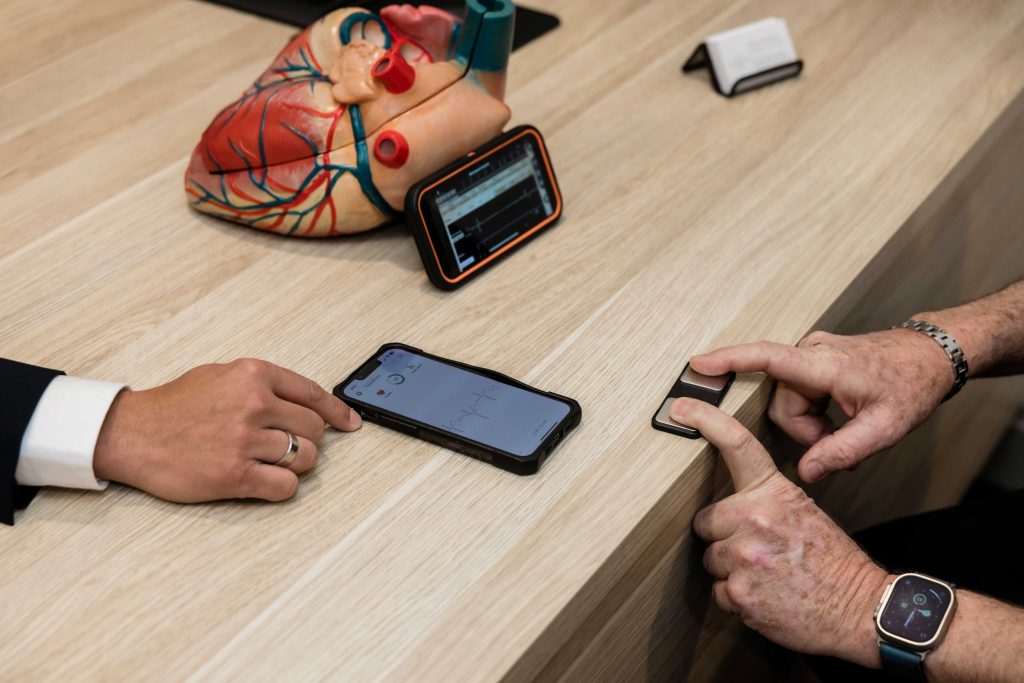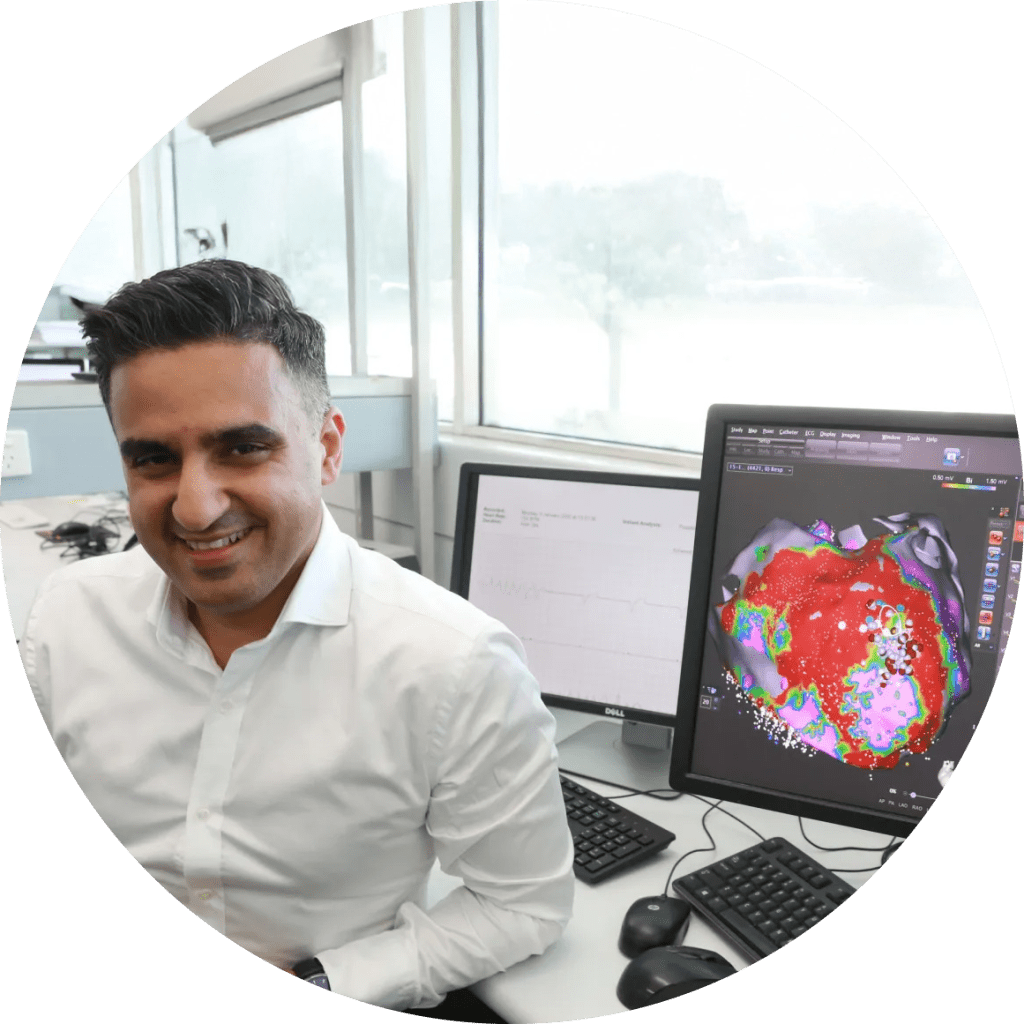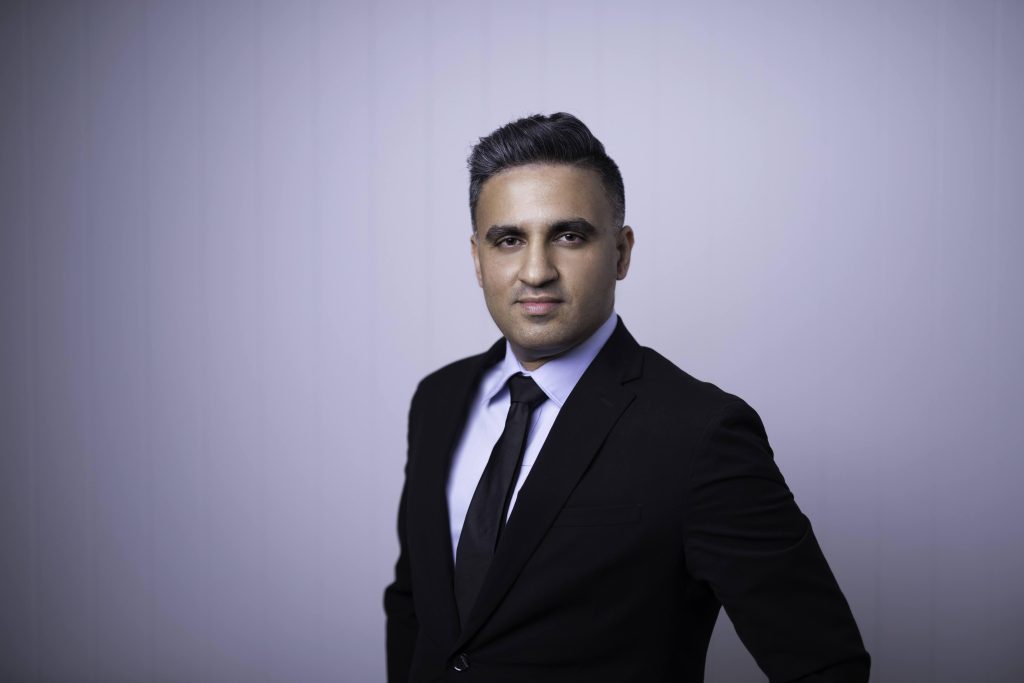General Cardiology Assessment

Thorough evaluation and personalised care for your heart health Cardiovascular disease remains one of the leading causes of death and disability in Australia—yet with early diagnosis and proactive care, many heart-related conditions are highly manageable.
A general cardiology assessment offers a comprehensive overview of your cardiovascular health, helping to identify potential issues before they become more serious.
At his Sydney-based practice, A/Prof Saurabh Kumar provides detailed, evidence-based cardiac assessments tailored to each patient’s needs. With over 15+ years of experience and a dual focus in general cardiology and interventional electrophysiology, he combines advanced diagnostic tools with a thoughtful, personalised approach.
Who Should Consider a Cardiology Assessment?
Many patients are referred for evaluation due to symptoms such as:
- Chest discomfort or pressure
- Palpitations or irregular heartbeat
- Dizziness or fainting (syncope)
- Shortness of breath
- Fatigue or exercise intolerance
Others may have known risk factors, including high blood pressure, elevated cholesterol, diabetes, obesity, or a family history of early heart disease. According to the Australian Institute of Health and Welfare, around 1.2 million Australians live with a form of cardiovascular disease—many without knowing it.
A general cardiology assessment is also valuable for those preparing for surgery, engaging in high-level sport, or simply seeking reassurance through preventive screening.

Common Conditions Assessed and Managed
Hypertension
Stable angina
Heart failure (with reduced or preserved ejection fraction)
Cardiomyopathies
Diseases of the heart muscle, including:
- Dilated cardiomyopathy – where the heart becomes enlarged and weakened
- Hypertrophic cardiomyopathy – often inherited and associated with thickened heart muscle
- Restrictive cardiomyopathy – a rarer form that limits the heart’s ability to relax and fill properly
Palpitations of uncertain origin
Sensations of skipped or racing heartbeats, which may be benign or indicate underlying arrhythmias requiring further investigation.
Asymptomatic ECG abnormalities
Diagnostic Services Offered
A/Prof Kumar’s general cardiology assessments involve a suite of non-invasive tests, selected according to each patient’s symptoms and risk profile. These may include:
Clinical assessment of symptoms – A detailed discussion and physical examination focused on chest pain, breathlessness, dizziness, or palpitations. Understanding the context of symptoms helps guide accurate diagnosis and appropriate investigations.
Cardiovascular risk assessment – A comprehensive evaluation of:
- Blood pressure and lipid profile
- Smoking and alcohol intake
- Family history of cardiac conditions
- Physical activity levels and weight
- Blood glucose and metabolic risk factors
This forms the foundation for primary prevention and long-term cardiovascular planning.
Advanced Diagnostic Services:
Resting 12-lead electrocardiogram (ECG)
Ambulatory blood pressure monitoring
Transthoracic echocardiogram (TTE)
Exercise stress testing or stress echocardiography
Cardiac CT angiography and coronary calcium scoring
Medication and Ongoing Management
Based on your assessment results, A/Prof Kumar may recommend medications to manage:
- Hypertension – Using antihypertensives tailored to your cardiovascular profile
- High cholesterol – Statins or other lipid-lowering therapies for those at elevated risk
- Heart failure – Guideline-directed medical therapy to optimise heart function and reduce hospital admissions
- Stable angina or coronary artery disease – Medications to relieve symptoms and improve blood flow
Treatment plans are always discussed in detail, with patient goals and lifestyle taken into account. A/Prof Kumar works closely with GPs and other specialists to ensure coordinated care, with regular follow-up to track progress and make adjustments where needed.
A Preventive and Personalised Approach
While many patients seek cardiology review due to symptoms, an increasing number attend for preventive health screening. Whether you have a strong family history of heart disease or simply want to establish a cardiovascular baseline, A/Prof Kumar’s assessments offer peace of mind and a roadmap for long-term heart health.
With access to the latest diagnostic technology and a warm, collaborative approach, A/Prof Kumar ensures every patient receives care that is both scientifically rigorous and personally attentive.


Take Control of Your Heart Health Today.
A/Prof Saurabh Kumar brings over 15+ years of clinical expertise to the care of patients with heart rhythm disorders and general cardiac conditions. He is widely regarded within the Australian cardiology community and internationally for his depth of knowledge, collaborative style, and commitment to patient-centred care.
He holds dual roles as a Staff Specialist Cardiologist and Cardiac Electrophysiologist at Westmead Hospital and Clinical Associate Professor of Medicine at the University of Sydney. He currently serves as the Program Director for Ventricular Arrhythmias and Sudden Cardiac Death at Westmead Hospital and is the Translational Electrophysiology Lead at the Westmead Applied Research Centre, University of Sydney.